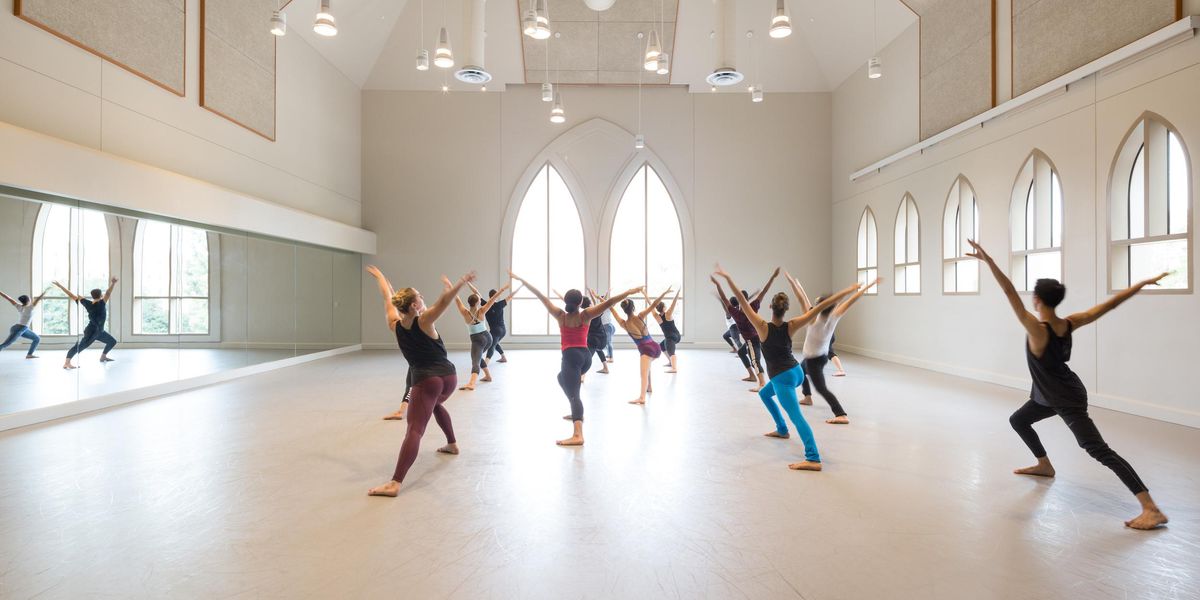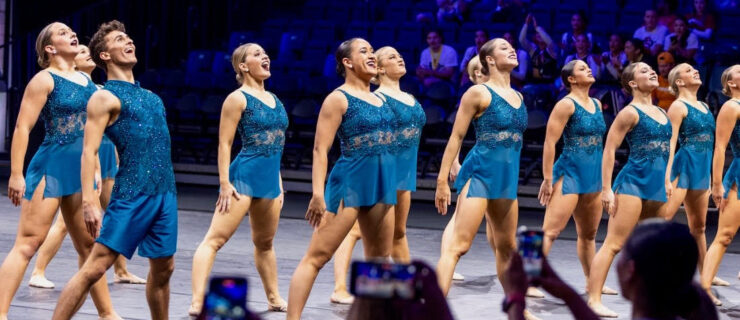Making It Happen: The New Jersey-Israel Commute
The New Jersey–Israel Commute
It might seem inevitable that an undergraduate dance program located in New Brunswick, New Jersey, just 45 minutes from New York, would draw on the Big Apple’s resources. Less expected, however, is the longer commute that Julia Ritter had in mind after being appointed chair of the Rutgers Dance Department at the Mason Gross School of the Arts in 2010.
“I decided,” says Ritter, “that I was going to do as much as I could to introduce my students to being a dancer as a global citizen.” Inspired by her experiences as a Fulbright fellow and by former Rutgers University president Richard McCormick’s slogan, “Jersey Roots, Global Reach,” Ritter began her new position as chair by working to develop a study-abroad program, the first in the dance department’s 30-year history. Through a connection to DanceJerusalem, a university-level program based in Israel’s capital, she channeled her efforts into sending Rutgers dancers to Israel and—eventually—inviting Israeli choreographers to share their expertise on campus.
“I think Israel, especially within the past two decades, has just exploded in terms of the creativity there,” says Ritter. “All my students talked about was Batsheva”—the Tel Aviv–based company directed by Ohad Naharin—“and they wanted to take Gaga, and they wanted to learn more about the dance art that was coming out of Israel.”
In 2011 Ritter had the opportunity to present her students at the Joyce Theater in New York, for which she received a grant to commission work from artists of her choosing. That January—one semester before the first study-abroad students flew to Israel—Danielle Agami, a former Batsheva dancer, arrived on campus and began working with 17 dancers on a new piece, Stella, which she linked to an excerpt from Naharin’s Three.
Thus began a four-year initiative (now in its third year) to bring Israeli choreographers to Rutgers. The program has welcomed the full spectrum of Israeli contemporary dance: a week of classes and open rehearsals with the contact-improv influenced, eco-conscious Vertigo Dance Company in 2011; a month in 2012 working with Talia Beck, rehearsal director of the highly theatrical Inbal Pinto & Avshalom Pollak Dance Company (an experience capped by a five-day stint with Pinto herself); a visit from Deborah Friedes Galili, founder of the Dance in Israel website, who lectured and taught Gaga to second-year BFA students; and a one-week residency with independent choreographer Idan Cohen in February 2013. The initiative will continue through 2014, with artists Niv Sheinfeld and Oren Laor in residence for a semester next spring.
Learning choreography created outside the country has made an impact on BFA students like Miriam Gabriel, a junior cast in an excerpt of Pinto’s Rushes Plus and a current DanceJerusalem study-abroad student. “Inbal Pinto’s work was something really fresh and new to our bodies, because we do work with a lot of New York choreographers,” she says.
For Ritter, this international expansion of her students’ knowledge is essential. “They see that New York is not the only mecca,but that there are other meccas in the world that they can go explore,” she says. “That’s what really allows them to grow as people—as humans, but also as artists. To see that there are different communities and different styles of work, and that people have different lifestyles around their dance. It doesn’t have to be the lifestyle that shakes you in New York. There could be a lifestyle and a dance world that shakes you in Israel or Taiwan or London or Berlin.”
Agami, who now has her own company (the Los Angeles–based Ate9 dANCEcOMPANY), agrees. “I think it gives them the freedom to try something new because it comes from somewhere else,” she says. “It opens their eyes about what’s going on beyond the United States.”
Ritter is working hard to extend her program to other dance-rich countries. Rutgers sent its first BFA dance student to study in London at Trinity Laban last fall, and a new program is in the works at the Taipei National University of the Arts, with a planned start date for fall of 2014. By exposing her students to artists working in different countries, Ritter believes that the dance world can begin to feel accessible on a global scale. “I think that the sense of the world being this huge scary place shrunk for them.”




